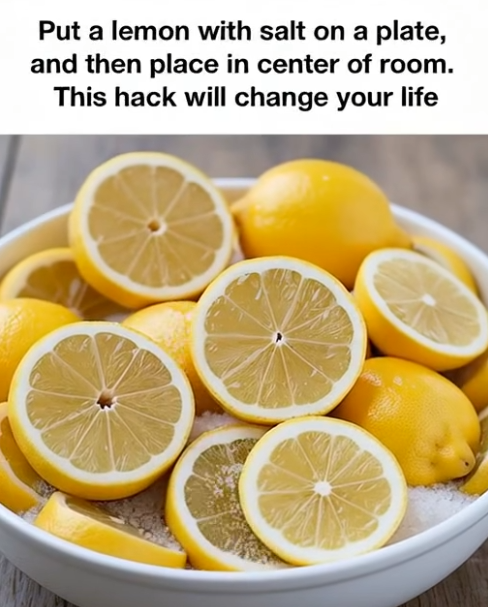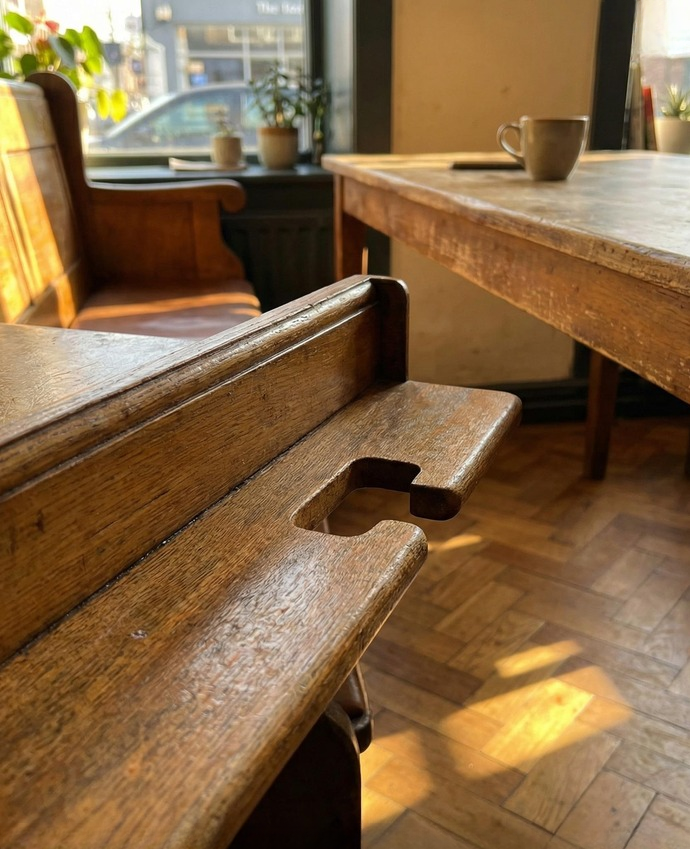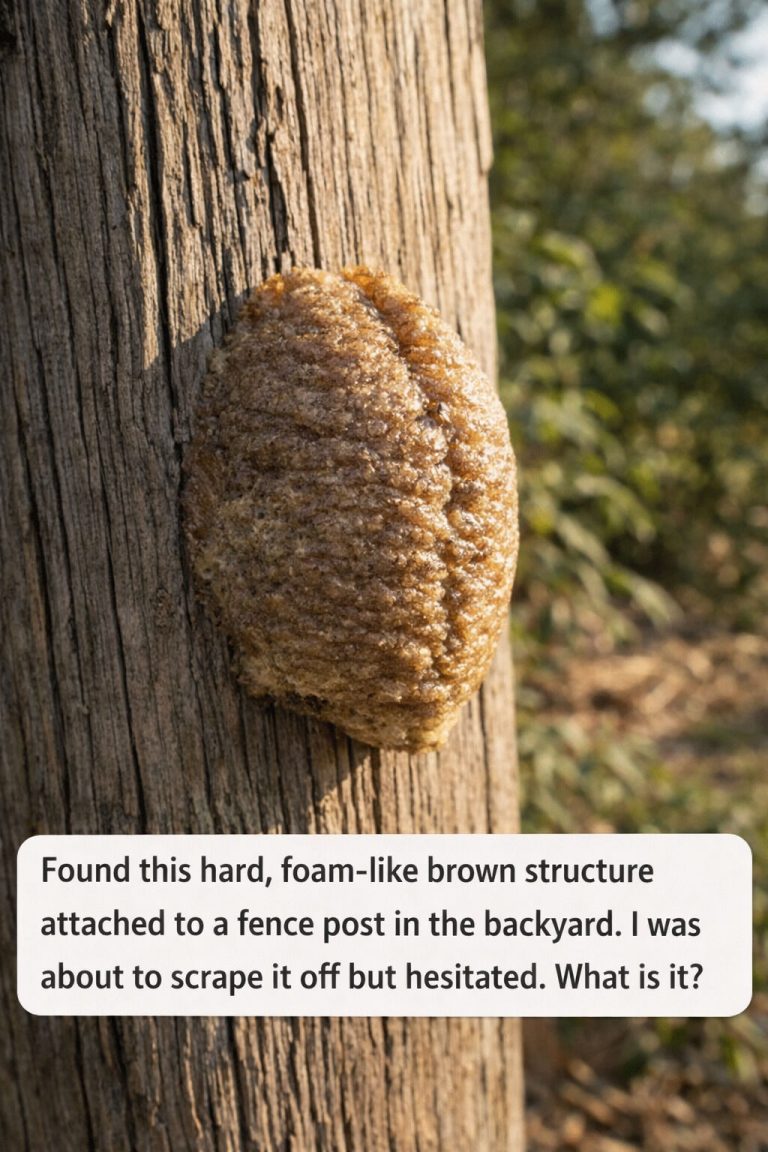
For years, home-remedy blogs and social media posts have touted a simple “trick” – cut a fresh lemon into quarters, sprinkle it with salt, and set the slices on a plate in the center of a room – as a cure-all for bad smells, stress, “negative energy,” and even germs. Proponents claim this ritual freshens the air, boosts mood, repels insects, and cleanses the space spiritually. But what is the reality behind these claims? In this article we examine the scientific evidence and traditional beliefs about putting lemon and salt in a room, and explain the best way (if any) to try it safely. We also cite credible expert opinions that support or debunk the practice.
Scientific and Practical Effects of Lemon & Salt
- Aroma and odor masking. Lemon peel contains natural oils (chiefly d-limonene) that give off a fresh citrus scent. This pleasant fragrance can mask bad odors by over-powering them with lemon’s aroma. In practice, placing cut lemon or lemon slices in a room will make the air smell fresh simply because of the smell of lemon. It is not removing the odors chemically (like a purifier would), but your nose focuses on the lemon scent. Similarly, lemon’s citric acid and essential oils have mild antibacterial and antiseptic properties when applied directly. For example, a lemon-juice solution is sometimes used as a natural kitchen cleaner. One cleaning expert notes that citric acid makes lemon juice an effective antibacterial and bleaching agent on surfaces. However, in open air the effect is very weak – the lemon is not actively sanitizing the air. There is no scientific evidence that simply leaving a lemon slice in a room will kill germs in the air or on surfaces.
- Air purification and ions. Some advocates claim salt or lemon will “absorb negative ions” or trap pollutants, improving air quality. In reality, mainstream science finds no evidence for this. In fact, experts debunk similar claims about salt lamps or salt bowls. A Cleveland Clinic wellness article reports: “There’s not a lot of evidence to support the idea that Himalayan salt lamps [or, by extension, bowls of salt] provide any of the supposed health benefits”. Likewise, Healthline notes there is currently no evidence that salt devices (lamps, bowls, etc.) can remove pathogens or purify indoor air. In short, the “air purifier” story is unsupported: an actual air purifier or ventilation is needed to clean indoor air. Salt will not magically pull bacteria or toxins out of the air. At best, a dry pile of salt might absorb a tiny amount of moisture in a very humid room, but that effect is negligible in normal home conditions.
- Antibacterial compounds. Lemon’s value scientifically comes from its compounds like citric acid and limonene. Research shows lemon oil and citric acid can kill certain microbes in lab tests. For instance, one medical review notes that d-limonene (the main component of lemon peel oil) has antibacterial, antifungal, and antiviral properties. In practical terms, lemon juice can help clean a kitchen countertop. But again, a sliced lemon sitting out is not the same as using diluted lemon juice to scrub a surface. The vapor or juice concentration is far lower than what was used in studies. So while lemon juice is used as a natural cleaner (thanks to citric acid and its acidity), simply leaving lemon slices around will not achieve the same sanitizing effect.
- Insect-repellent effects. The compound limonene also has insect-repelling properties. In laboratory and practical applications, limonene is used as a natural insect repellent and pesticide. Some studies on citrus oils (like orange or citronella oils) show they can deter mosquitoes. For example, one horticultural study found that certain citrus peel oils can provide short-term mosquito repellency. However, lemon specifically tends to be less effective than other citrus varieties in these studies. In fact, researchers found lemon peel oil was the least effective at repelling Aedes mosquitoes compared to other citrus oils. In everyday practice, having a lemon slice on a plate will release only a very small amount of aroma, which is unlikely to keep pests out. It may help a little against fruit flies (which dislike citrus), but overall this trick is not a reliable insect repellent. For real pest control, experts recommend purpose-made traps or repellents.
Summary: Scientifically, lemons and salt contain compounds that can clean or freshen in certain ways (citric acid can bleach and kill bacteria on contact; limonene can repel or kill some insects). Lemon aroma also can mask odors and might uplift mood (see next section). But there is no evidence that an unworked lemon-and-salt setup acts as an air purifier or germ-killer in a room. Health experts emphasize that proven methods (good ventilation, HEPA air filters, cleaning) are required to actually improve air quality. As one doctor puts it, salt lamps (and by analogy salt bowls) are popular for their glow or serenity, but their supposed health benefits “aren’t supported by science”.
Health and Wellness Claims
Many supporters of the lemon-and-salt trick cite benefits like stress relief, mood-boosting, or even better sleep. Are these claims grounded in anything real? Part of the effect here comes from aromatherapy – the science of scent. Citrus fragrances (including lemon) have been studied for their impact on human emotions:
- Mood improvement and relaxation. Several studies suggest that smelling citrus scents can reduce anxiety and improve mood. For example, a Japanese clinical study found that inhaling yuzu (a citrus fruit) oil for 10 minutes significantly lowered measures of tension, depression, anger and confusion for up to 30 minutes afterward. Denver Channel (a news outlet) reports on this study, noting that women who smelled yuzu oil had reduced stress hormones in their saliva compared to controls. While yuzu isn’t lemon, it is a closely related citrus scent. Other aromatherapy research indicates lemon oil in particular is calming: one mouse study showed lemon aroma was a strong relaxant under stress and even more effective than lavender oil in that test. A small human study also found lemon essential oil reduced anxiety in people recovering from surgery. So it is plausible that the faint scent of lemon in a room might help some people feel more relaxed or uplifted. (It’s also possible that simply knowing you are trying a “cleansing ritual” has a placebo effect on feeling calm.)
- Natural “air freshener.” Beyond mood, the perception of freshness can itself make you feel better. Having clean air or the idea of a clean environment is psychologically soothing. People often report that a citrus-scented house feels fresher. For example, household cleaning articles note that lemon’s smell “spruces up your environment” and leaves you “relaxed or uplifted” after cleaning. Cutting lemon (or simmering it) is a well-known home remedy to freshen the home. The actual effect is masking odors and giving a “clean” scent. It’s not magical, but it is a natural air freshener. A lemon in the room won’t stay potent very long (maybe a few hours at best), but in that time it will give off a pleasant citrus smell.
- Alertness and focus. Some fans claim lemon increases alertness or productivity. There is a bit of intriguing evidence here: in a small 2004 educational study, students who attended a language class in a room diffused with lemon oil performed better on exams than those in a non-scented room. Another small study suggested that aromatherapy with citrus could improve cognitive function in Alzheimer’s patients. These findings hint that lemon scent can perk up the mind. If true, having a gentle lemon aroma in your study or office might help concentration. (However, these studies used stronger aroma diffusion, not a passive lemon slice.)
- Sleep and relaxation. There is no strong evidence that lemon specifically improves sleep. In fact, one review of air ionization found no effect on relaxation or sleep. If lemon scent makes you feel clean and calm, it might indirectly help you unwind before bed, but again, this is more personal than proven. Some people even keep lemons with salt near their bed as a nightly ritual to “absorb heavy energies”, but scientifically this is untested.
Bottom line: The aroma of lemon does have some mild mood-enhancing and stress-relieving effects according to aromatherapy research. So placing lemon slices in your room could make the atmosphere feel fresher and more uplifting just by smell. But any therapeutic effect is likely due to scent and personal belief, not the lemon “purifying” anything. Lemon aroma can indeed act like a natural air freshener, helping people feel better about a space, even if it doesn’t change the actual air chemistry. In other words, the psychological benefit is the main “wellness” gain here.
Cultural and Spiritual Beliefs
Lemons and salt hold symbolic meaning in many cultures. In Mediterranean and Middle Eastern folklore, for example, citrus fruits like lemons are long associated with cleansing and protection. It is traditional in some communities to place a lemon (or citrus bowl) by the bedside or windowsill to “ward off the evil eye” and absorb negative energy. One custom is to cut a lemon in half, leave the halves out overnight on a plate to soak up the day’s heavy vibes, and dispose of them in the morning. Similarly, many cultures use salt for spiritual cleansing. Bowls of salt are often set in the corners of a room or at thresholds to absorb bad energy. In fact, whole households might circle someone with salt, then throw it away, as a way to drive out negativityt. These practices date back generations and are found in folk magic, Hindu puja, Catholic blessed salt rituals, and Japanese Shinto (where salt is placed at entrances for purity).
In Feng Shui (the Chinese art of energy flow), citrus fruits play a role too. A bowl of fresh lemons, oranges, or limes is sometimes placed in the “health” or “wealth” area of a home to bring in good chi (energy). The vibrant color and fragrance of lemons are said to “clear” the space and attract positivity. One Feng Shui practitioner even recommends keeping a bowl of nine lemons in the home to invite prosperity (nine being a lucky number in some schools). While Feng Shui advisors stress that it’s your intention, not just the object, that creates luck, they do agree lemons can “elevate the energy” in a room.
Even in Western folk magic, lemons and salt appear as purifying agents. Traditional Italian lore holds that a hanging lemon (often spiked with cloves) repels evil spirits. Modern Wicca and neo-pagan traditions also use lemon and salt to “break hexes” and cleanse spaces. Overall, the idea is symbolic: the bright, sharp lemon stands for clarity and freshness, and salt represents purity and protection.
These cultural beliefs endure today in different forms. As The Times of India reports in a popular astrology column, many families still use chili-lime or salt-lime rituals to remove the “evil eye”. Social media is full of posts and videos of people chanting mantras over lemons with salt or using this simple setup to “refresh” their home aura. Whether one views it as superstition or symbolic hygiene, the lemon-and-salt practice clearly resonates with diverse traditional remedies around the world.
How to Try the Lemon-and-Salt Trick
If you want to experiment with this remedy, here are some general guidelines gathered from folk practice:
- Gather materials. You will need one fresh lemon, a small dish or plate, and some table salt. Some people use coarse sea salt or rock salt, but ordinary salt works too.
- Cut the lemon. Slice the lemon into halves or quarters. (Most instructions say four slices or two halves works fine.) The idea is to expose more surface area so the juices and oils can evaporate.
- Add salt. Sprinkle a generous pinch of salt onto each lemon slice. The salt may help draw out moisture and oils from the lemon, and many traditions say it “activates” the purifying properties of the citrus. (Whether or not that is scientifically true, salt is an antiseptic in its own right on contact, and it has symbolic meaning as discussed above.)
- Place on a plate in the room. Use a plate or bowl to hold the lemon and salt so juices don’t spill. Put it in the center of the room or on a table where it’s noticeable. Some suggest placing it at roughly head height on a table, or on your nightstand, depending on the purpose (e.g. bedtime energy clearing). Choose a spot where the lemon scent can spread (and where pets or children won’t disturb it).
- Leave it out briefly. Folk practitioners typically keep the lemon out overnight or for a full day. The common advice is to let it sit until it dries out or starts to look dull, then replace it. Change it frequently. According to one source, people throw out the lemon in the morning after it has done its work. In practice, this means replacing the lemon (and salt) at least daily or every couple of days before mold or decay sets in.
- Dispose of old lemon and salt. When you remove the lemon and salt (e.g. next morning), you can discard it. Some traditions even burn or flush the items to symbolically “release” the negative energy they absorbed. Empty the plate, wash it, and start fresh if you wish to continue the ritual.
- Precautions. A few cautions: (a) Used lemon slices will grow mold or attract fruit flies if left too long, so change them often. (b) If anyone in the home is allergic to citrus, this may trigger irritation. (c) Keep the lemon and salt out of reach of pets – for example, cats dislike citrus smells and the essential oils can be harmful if ingested in quantity. (d) Don’t rely on this as a sole method for air quality or health; it’s a supplemental practice at best. Finally, remember to clean the plate or bowl regularly to prevent sticky residue from salt and lemon juice.
Expert Opinions and Evidence
What do experts say about this practice? Mainly that the claims exceed the evidence. Medical and environmental experts caution against relying on unproven home remedies for serious benefits:
- Air quality experts: As noted, organizations like the Cleveland Clinic and health writers emphasize there is no proof that salt or lemon “purify” the air. In fact, the Cleveland Clinic’s Dr. Neha Vyas advises, “If you’re serious about improving the air quality in your home, try an air purifier… [which has been] shown to remove particles from indoor spaces”. By contrast, salt lamps (and by analogy salt bowls) can create a pleasant glow or sense of ambiance, but have “little evidence to back up claims” of health effects. Similarly, salt is known chemically to not generate significant “negative ions” at room temperature; any ion-generating effect of salt devices is essentially unproven.
- Health professionals: No doctor recommends the lemon-and-salt trick as a cure. Experts simply note that citrus scents can affect mood, but they treat this like any other aromatherapy. For example, one health writer explains that although high-level negative ions can affect mood, a salt lamp or lemon bowl cannot produce nearly enough ions to impact health. The bottom line from physicians is this: You might enjoy the ritual and smell, but don’t expect it to medically clean your air or ward off illness. Cleveland Clinic’s website bluntly states: “There’s little evidence to back up the claims” that such home remedies improve air quality, sleep, or mood.
- Air purifier comparison: For context, the same experts recommend proven methods if you have indoor air issues. Proper ventilation, HEPA filters, and good housekeeping remove allergens and volatile chemicals. In contrast, leaving a lemon on a plate is not a substitute. One review found that even a real ionizer (with strong electrical charge output) failed to help asthma or respiratory function. So we should view lemon-and-salt as a mild home fragrance ritual, not a health device.
- Cultural perspective: Anthropologists and folklorists note that many of these beliefs are symbolic. They may contribute real psychological comfort, but not measurable physical change. Dr. Stephanie M. Lee (a medical anthropologist) has commented on similar practices, saying that the feeling of well-being comes from ritual and intention more than material effect. In the case of lemon and salt, the ritual of care – doing something “to clean your space” – may itself reduce stress. (No formal study exists on this particular ritual, but the general placebo and ritual effect is recognized in psychology.)
In summary, mainstream sources neither confirm nor celebrate any magical power of lemon slices or salt bowls. What they do confirm is that citrus scents can be mood-boosting, which is the closest thing to a solid benefit here. They also warn that claims about “negative ions” and germ-killing are unsupported.
Conclusion
Placing a lemon with salt on a plate in your room is largely a folk remedy. It does harness some natural features of lemon – namely its bright scent and acidity – which can make your home smell fresher and help you feel uplifted. This, combined with the comforting symbolism of “cleansing,” explains why people like it. Culturally, lemon-and-salt rituals connect to global traditions of purification and protection.
However, from a scientific standpoint, don’t count on it as a real air purifier or disinfectant. Experts say: enjoy the lemon fragrance if you like it, but rely on proven methods (cleaning, ventilation, air filters) for actual air quality and hygiene. If the lemon-and-salt setup helps you relax or meditate, that’s a fine bonus, but treat it more as a symbolic or aromatherapy practice than a health cure. In the end, many home “wellness hacks” are about intention and ambiance. Placing lemon slices with salt can be a harmless ritual that smells nice – just don’t expect it to literally absorb poisons or bad vibes from the air. As one expert puts it, “take all such claimed benefits with a grain of salt”, appreciating the positive psychology but recognizing the limits of the science.
Sources: This article draws on health and science journalism (e.g. Cleveland Clinic and Healthline reviews), aromatherapy research, ethnobotanical lore, and cultural reports. For example, health experts note the lack of evidence for salt lamps and similar trends, while aromatherapy studies show lemon scent’s calming effect. Traditional remedies (Times of India, folk blogs) illustrate the widespread use of citrus and salt for “cleansing” Together these sources help separate the practical uses of lemon (fresh aroma) from the mythical ones (energy cleansing), giving you a balanced view.



